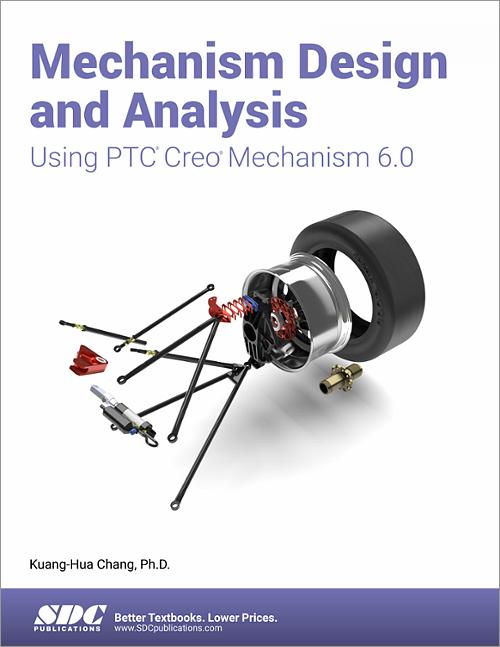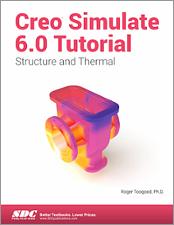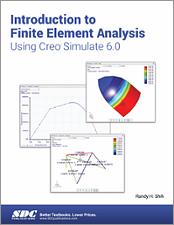Mechanism Design and Analysis Using PTC Creo Mechanism 6.0
- Description
- Contents
- Downloads
- Instructor Resources
- Details
Description
Key Features
- Learn to make your design process more cost effective, reliable, and efficient
- Teaches you how to prevent redesign due to design defects
- A project-based approach teaches new users how to perform analysis using Creo Mechanism
- Covers model creation, analysis type selection, kinematics and dynamics, and results visualization
- Incorporates theoretical discussions of kinematic and dynamic analysis with simulation results
- Covers the most frequently used commands and concepts of mechanism design and analysis
In Detail
Mechanism Design and Analysis Using PTC Creo Mechanism 6.0 is designed to help you become familiar with Mechanism, a module of the PTC Creo Parametric software family, which supports modeling and analysis (or simulation) of mechanisms in a virtual (computer) environment.
Capabilities in Mechanism allow users to simulate and visualize mechanism performance. Using Mechanism early in the product development stage could prevent costly redesign due to design defects found in the physical testing phase; therefore, it contributes to a more cost effective, reliable, and efficient product development process.
The book is written following a project-based learning approach and covers the major concepts and frequently used commands required to advance readers from a novice to an intermediate level. Basic concepts discussed include model creation, such as body and joint definitions; analysis type selection, such as static (assembly) analysis, kinematics and dynamics; and results visualization. The concepts are introduced using simple, yet realistic, examples.
Verifying the results obtained from computer simulation is extremely important. One of the unique features of this textbook is the incorporation of theoretical discussions for kinematic and dynamic analyses in conjunction with simulation results obtained using Mechanism. The theoretical discussions simply support the verification of simulation results rather than providing an in-depth discussion on the subjects of kinematics and dynamics.
Table of Contents
- Introduction to Mechanism Design
- A Ball Throwing Example
- A Spring Mass System
- A Simple Pendulum
- A Slider-Crank Mechanism
- A Compound Spur Gear Train
- Planetary Gear Train Systems
- Cam and Follower
- Assistive Device for Wheelchair Soccer Game
- Kinematic Analysis for a Racecar Suspension
Appendix A: Defining Joints
Appendix B: Defining Measures
Appendix C: The Default Unit System
Appendix D: Functions
Downloads
For additional information on downloading, unzipping, and using these files visit the downloads section on our Frequently Asked Questions page.
Instructor Resources
The following downloadable resources require that you are registered, logged in and have been authenticated as an instructor.
Product Details
| Publisher | SDC Publications |
| Authors | Kuang-Hua Chang Ph.D. |
| Media Types | Print Book, eBook |
| Primary Languages | English |
| Published | June 26, 2019 |
| User Level | Beginner |
| Pages | 178 |
| Binding | Paperback |
| Printing | Black and White |
| Print ISBN | 978-1-63057-298-3 |
| Print ISBN 10 | 1630572985 |
| eBook ISBN | 978-1-63056-525-1 |


